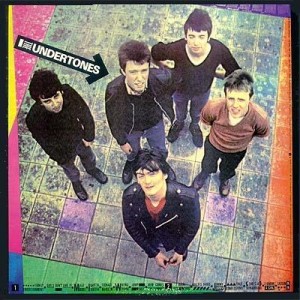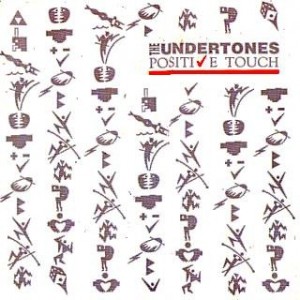 The shock of loud guitars and amped-up tempos obscured for many the fact that punk rock was pop at its core. The Ramones’ subject matter leaned toward the B-movie, but the songs descended from the Beach Boys (minus the harmonies). In England, the Buzzcocks and Ireland’s the Undertones were the Ramones’ rivals as pop classicists in leather jackets.
The shock of loud guitars and amped-up tempos obscured for many the fact that punk rock was pop at its core. The Ramones’ subject matter leaned toward the B-movie, but the songs descended from the Beach Boys (minus the harmonies). In England, the Buzzcocks and Ireland’s the Undertones were the Ramones’ rivals as pop classicists in leather jackets.
Recently, the Undertones’ first four albums and a new best of were released as digital-only albums on Union Square Records, available through iTunes. Of them, 1979’s debut album, The Undertones, remains one of the must-own albums of the period, each song surging with the rushing beat, chopping downstroke guitars, and Feargal Sharkey’s slightly strangled vocal delivery. Lyrically, the songs are more conventional than those of the band’s punk peers – often standard boy/girl stuff, albeit with a healthy edge of smartass urgency – but chorus after chorus catches so even minor tracks such as “Wrong Way” and “(She’s a) Runaround” hang easily with such classics as “Girls Don’t Like It,” “Jimmy Jimmy,” “Jump Boys” and “Here Comes the Summer.”
The follow-up, Hypnotised, starts with “More Songs About Chocolate and Girls,” which tells you what you need to know about the album. It is literally more, and with the exception of a cover of “Under the Boardwalk,” Hypnotised pales next to The Undertones only because it came second.
 1981’s Positive Touch retains the band’s pop sense, but it presents a band that felt constrained by punk’s guitar-bass-drums format, reaching beyond the orthodoxy to incorporate a broader musical palate and soul notes. It predates the Jam’s similar The Gift, which came out in 1982, but while the songs still work, Positive Touch suggests why the band had trouble finding an audience in the United States. “Punk” gave them a context; outside of that, they were yet another band that simply had good songs, and bands like that flare up and fade away daily. Audiences attach themselves to artists that they feel like they know, people that they can construct, and the Undertones didn’t offer a story; they offered songs. On the album, Sharkey’s growth as lyricist is obvious, and he clearly enjoys songs that require more of him than the determination to plow through, but only “When Saturday Comes” stays with me.
1981’s Positive Touch retains the band’s pop sense, but it presents a band that felt constrained by punk’s guitar-bass-drums format, reaching beyond the orthodoxy to incorporate a broader musical palate and soul notes. It predates the Jam’s similar The Gift, which came out in 1982, but while the songs still work, Positive Touch suggests why the band had trouble finding an audience in the United States. “Punk” gave them a context; outside of that, they were yet another band that simply had good songs, and bands like that flare up and fade away daily. Audiences attach themselves to artists that they feel like they know, people that they can construct, and the Undertones didn’t offer a story; they offered songs. On the album, Sharkey’s growth as lyricist is obvious, and he clearly enjoys songs that require more of him than the determination to plow through, but only “When Saturday Comes” stays with me.
On 1983’s The Sin of Pride, for the first time, the songs aren’t there. It’s the sort of album that those prone to championing a band’s third or fourth-best album as an overlooked masterpiece could latch on to as it illustrates a good band struggling to find a way to be musically and artistically meaningful. It’s not a convincing argument, though, particularly when heard next to The Undertones, which was both without trying so hard. It’s the product of growing up, growing frustrated, and while it’s interesting, the fun is more theoretical than actual.




